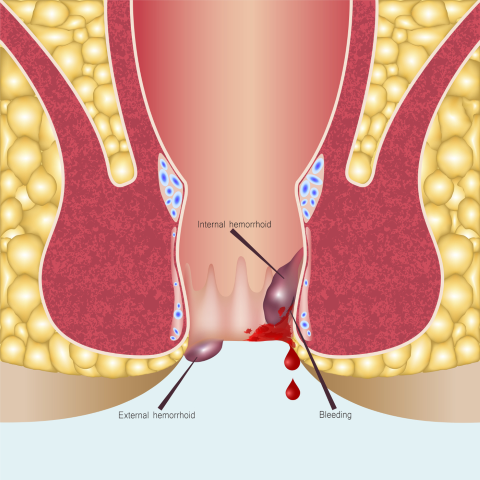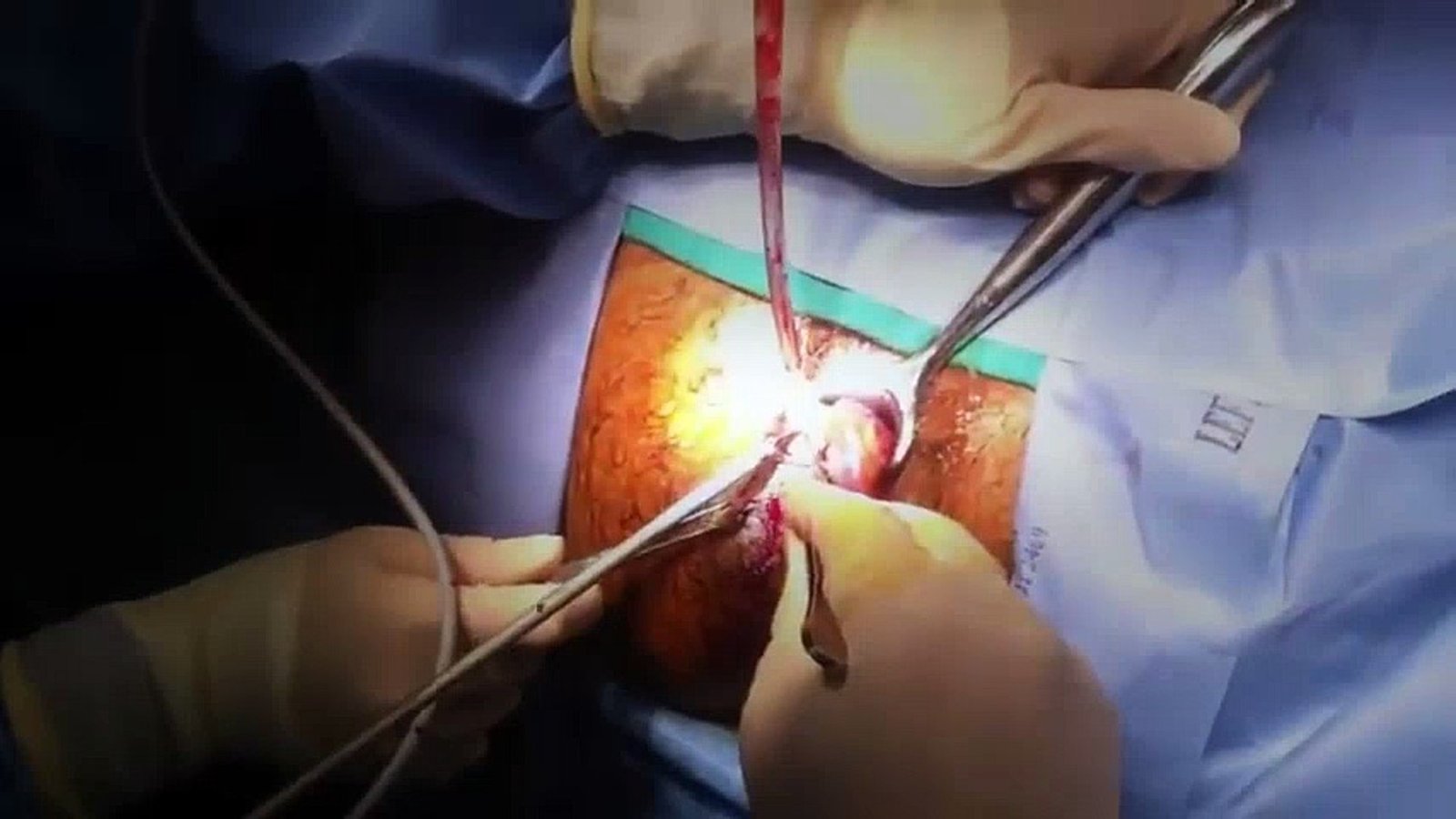

Understand Laser Piles Surgery & It’s Procedure
Piles, also known as hemorrhoids, are swollen veins in the lower part of the anus and rectum. When the walls of these blood vessels stretch, they become irritated. Though piles can be uncomfortable and painful, many effective treatments can reduce the swelling and relieve symptoms. Among these, laser piles surgery has emerged as a modern, less invasive procedure.

Understanding Piles: Causes and Symptoms
The main causes of piles can include-
- Chronic constipation: Straining during bowel movements due to constipation can put pressure on the blood vessels in the anal area, leading to piles.
- Pregnancy: The increased pressure on the abdomen during pregnancy can contribute to the development of piles.
- Obesity: Excess weight can put additional pressure on the blood vessels in the anal area, increasing the risk of piles.
- Sedentary lifestyle: Lack of physical activity can lead to poor blood circulation and increased pressure on the blood vessels in the anal area.
The symptoms of piles can vary from person to person, but commonly include-
- Bleeding during bowel movements: Blood may be seen on toilet paper or in the toilet bowl after a bowel movement.
- Lumps or swelling near the anus: Piles can cause a lump or swelling in the anal area, which may be painful or tender to the touch.
- Itching and irritation: Piles can cause itching and irritation in the anal area, leading to discomfort.
- Pain or discomfort during bowel movements: Straining during bowel movements can worsen the pain or discomfort caused by piles.
It is important to consult a healthcare professional for a proper diagnosis and to discuss treatment options if you are experiencing symptoms of piles.
Overview of Laser Piles Surgery: Advantages and Disadvantages
Laser piles surgery is a modern and minimally invasive procedure for treating piles. It offers several advantages over traditional surgical methods, including-
- Precision and accuracy: Laser technology allows for precise removal of piles, minimizing damage to surrounding tissues.
- Minimal bleeding: Laser energy seals blood vessels during the procedure, reducing post-operative bleeding.
- Faster recovery: The minimally invasive nature of laser surgery results in shorter hospital stays and quicker recovery times.
- Reduced pain and discomfort: Laser surgery minimizes tissue trauma, leading to less post-operative pain and discomfort.
Although laser piles surgery has numerous advantages, it also has some disadvantages to consider:
- Cost: Laser surgery may be more expensive than traditional surgical methods.
- Availability: Not all hospitals or clinics may offer laser piles surgery, so it is important to research and choose a facility that specializes in this procedure.
- Potential risks: As with any surgical procedure, there are potential risks involved, such as infection, bleeding, and damage to surrounding structures.
Overall, laser piles surgery is an effective and advanced treatment option for those suffering from piles, but it is important to consult with a healthcare professional to determine if it is the right choice for your individual case.
Dr. Rahul Mahadar, a renowned Laser Piles Surgeon in dombivli at Jeevanshree Hospital in Dombivli, offers Laser Piles Surgery, which provides advantages over traditional methods, including reduced pain, faster recovery, and lower complication risks. Consultation with Dr. Rahul Mahadar is crucial for personalized treatment selection. Laser piles surgery by Dr. Mahadar stands as a promising option for effective and minimally invasive treatment.

Detailed Procedure of Laser Piles Surgery
Pre-operative Preparation
Before the laser piles surgery, your surgeon will conduct a comprehensive evaluation to determine if you are a suitable candidate for the procedure. This evaluation may include a physical examination, medical history review, and possibly additional diagnostic tests.
In the days leading up to the surgery, you may need to follow specific instructions provided by your surgeon. These instructions may include dietary restrictions, medication adjustments, and bowel preparation to ensure the colon is empty.
Step-by-Step Laser Surgery Process
- Anesthesia: The surgery is typically performed under general anesthesia or spinal anesthesia. This ensures the patient’s comfort and allows the surgeon to perform the procedure without any pain or discomfort.
- Positioning: You will be positioned on the operating table in a way that allows the surgeon optimal access to the anal area.
- Laser Surgical Technique: The surgeon will use a special laser device to precisely remove or shrink the piles. Laser energy is directed towards the hemorrhoid tissue, causing it to shrink and eventually disappear.
- Sealing Blood Vessels: As the laser energy is applied, it simultaneously seals off the blood vessels, reducing bleeding during and after the procedure.
- Wound Closure: In some cases, the surgeon may need to suture the area to promote healing and prevent recurrent hemorrhoids. This will be determined on an individual basis.
- Recovery and Observation: After the surgery, you will be taken to a recovery area where medical professionals will monitor your vital signs and ensure that you are stable.
Post-operative Care
After laser piles surgery, you will be provided with specific post-operative instructions to follow. These instructions may include:
- Pain management: Your surgeon may prescribe pain medications to alleviate discomfort during the initial recovery period.
- Hygiene: Proper hygiene is crucial to prevent infection. You may be advised to take warm sitz baths and to gently cleanse the anal area.
- Dietary modifications: Your surgeon may recommend a high-fiber diet and increased fluid intake to prevent constipation and promote healthy bowel movements.
- Activity restrictions: Physical activity may be limited during the initial recovery phase. It is important to follow the surgeon’s instructions regarding restrictions on lifting heavy objects and engaging in strenuous activities.
- Follow-up appointments: Regular follow-up appointments will be scheduled to monitor your healing progress and address any concerns or complications.
Recovery After Laser Piles Surgery
Immediate Post-surgery Care
In the immediate post-operative period, it is normal to experience some discomfort, swelling, and minor bleeding. The use of pain medications, sitz baths, and proper hygiene will help manage these symptoms.
It is important to rest and avoid activities that could strain the surgical site. Your healthcare team will provide specific instructions on self-care and pain management during this time.
Piles Laser Surgery Recovery Time
The recovery time after laser piles surgery can vary depending on individual factors such as the extent of the surgery and the patient’s overall health. In general, most patients can expect to resume normal activities within a week to ten days.
It is important to note that each patient’s recovery is unique, and some individuals may experience a faster or slower recovery. Following a healthy diet, practicing good hygiene, and adhering to the post-operative instructions provided by your healthcare team can help promote a speedy recovery.
Managing Pain After Laser Piles Surgery
Pain management plays a crucial role during the recovery period after laser piles surgery. Your surgeon may prescribe pain medications to help alleviate discomfort during the initial stages.
Additionally, other pain management techniques such as applying ice packs to the surgical site, practicing relaxation techniques, and maintaining proper hygiene can help reduce pain and promote healing.
Post-Surgery Lifestyle and Precautions
Precautions After Piles Laser Surgery
After laser piles surgery, it is important to take certain precautions to ensure a successful recovery and minimize the risk of complications. These precautions may include-
- Avoiding heavy lifting and strenuous activities for a few weeks following surgery
- Not straining during bowel movements to prevent recurrence of piles
- Maintaining proper hygiene, including gentle cleansing of the anal area and avoiding excessive wiping
- Following a high-fiber diet and staying hydrated to promote regular bowel movements and prevent constipation
- Avoiding sitting or standing for prolonged periods, as this can put additional pressure on the surgical site
What to Eat After Piles Laser Surgery
A balanced and healthy diet is important for the recovery process after laser piles surgery. It is advised to consume foods that are high in fiber, such as fruits, vegetables, whole grains, and legumes. These foods help promote regular bowel movements and prevent constipation.
It is also crucial to stay hydrated by drinking an adequate amount of water throughout the day. Avoiding spicy and greasy foods can help minimize digestive discomfort during the healing process.
Activities to Avoid and Embrace
During the recovery period, it is important to avoid activities that could strain the surgical site or hinder the healing process. These activities may include:
- Lifting heavy objects
- Strenuous exercises or workouts
- Sitting or standing for extended periods without breaks
Activities that are gentle on the body and promote blood circulation can be beneficial during the recovery phase. These activities may include:
- Taking short walks
- Gentle stretching exercises
- Engaging in relaxation techniques, such as deep breathing and meditation
Choosing the Best Laser Surgery for Piles
Factors to Consider
When choosing the best laser surgery for piles, it is important to consider several factors:
- Surgeon’s expertise: Ensure that the surgeon performing the laser piles surgery is experienced and well-trained in the specific technique.
- Hospital or clinic reputation: Research the reputation of the hospital or clinic where the surgery will be performed. Look for facilities that specialize in laser surgery for piles and have a track record of successful outcomes.
- Technology and equipment: Verify that the hospital or clinic is equipped with the latest laser technology and equipment needed to perform the procedure safely and effectively.
- Cost and insurance coverage: Consider the cost of the surgery and whether it is covered by your insurance. Discuss financial aspects with the hospital or clinic before making a decision.
Why Choose Jeevanshree Hospital for Your Surgery
Jeevanshree Hospital is a renowned healthcare facility known for its expertise in laser surgery for piles. Here are some reasons to consider choosing Jeevanshree Hospital-
- Experienced surgeons: The hospital has a team of highly skilled and experienced Laser Pile Surgeon specializing in laser piles surgery.
- State-of-the-art facilities: Jeevanshree Hospital is equipped with advanced laser technology, ensuring safe and efficient procedures.
- Comprehensive care: The hospital offers comprehensive care throughout the entire process, from pre-operative evaluation to post-operative follow-up.
- Positive patient feedback: Jeevanshree Hospital has a track record of positive patient feedback, with many satisfied patients attesting to the quality of care received.
Conclusion
In conclusion, laser piles surgery is a modern and advanced treatment option for those suffering from piles. Understanding the causes and symptoms of piles, the detailed procedure of laser surgery, and the necessary precautions and lifestyle modifications after surgery are essential for a successful recovery.
When considering laser surgery for piles, it is important to take into account factors such as surgeon expertise, hospital reputation, technology and equipment, and cost. Jeevanshree Hospital stands as a trustworthy choice for laser piles surgery, offering experienced surgeons, state-of-the-art facilities, comprehensive care, and positive patient feedback.
If you are experiencing symptoms of piles or considering laser surgery, it is encouraged to consult with specialists at Jeevanshree Hospital or your healthcare provider for a proper evaluation and personalized treatment plan.


 Previous Post
Previous Post Next Post
Next Post